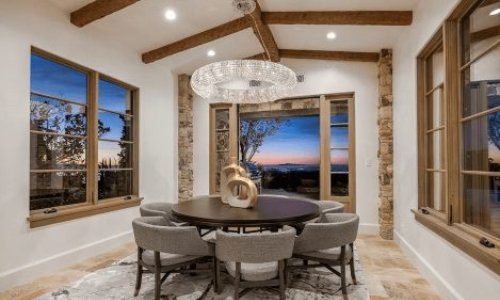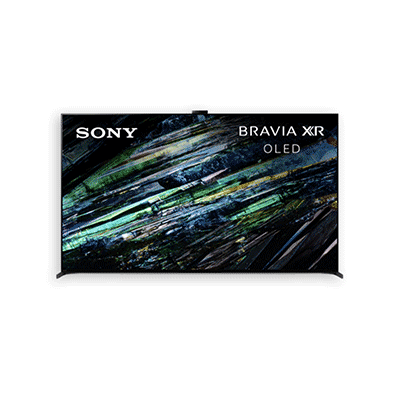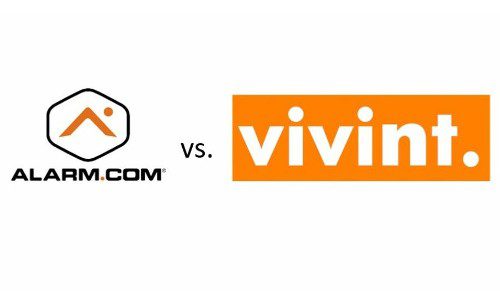Two new franchise companies think they can do for custom home technology what Performahome, Smart House and so many others could not.
What do Performahome, Smart House, Lifestyle Technology and Owens Corning have in common? They all launched franchise companies in the home systems space, and they all failed — some more colossally than others.
But their respective failures have not deterred other companies from pursuing the franchise formula, offering entrepreneurs a suite of marketing, operations and technical services that will presumably catapult them into the home systems business without the usual pain experienced by integration startups.
“We offer a systemic approach to becoming an integrator,” says Tyler Lantzy, president and founder of Saavihome, a new franchising venture based in Louisville, Colo. “We want to help new companies minimize mistakes and be part of a network of integrators.”
To be sure, the same rhetoric was spouted by the other franchisors that failed in this business, but Tyler is unfazed by the demise of his predecessors. In fact, he’s studied the casualties carefully — even flying cross-country to meet with former principals of the franchisors — in an effort to avoid their ate.

The Future of Digital Lighting & Control
As a custom integrator, lighting is in demand. Effective communication, education and showcasing the value proposition of LED light fixtures in conjunction with integrative control systems are the keys to overcoming challenges and closing sales in this specialized market. Join us as we discuss the future of digital lighting and control with David Warfel from Light Can Help You and Patrick Laidlaw and Mark Moody from AiSPIRE. Register Now!Avoiding the Franchise Curse
Smart House, which aimed for a 1,000-member network but sold only about a dozen franchises, failed for two key reasons, Lantzy surmises. First, the company promised too much to dealers and spent too much money in the process. Secondly, he says, “They saw franchisees as a channel for product sales.” Under the Smart House model, the corporation arranged with vendors to receive a cut of all “approved” products sold to dealers. Eventually, Smart House acquired distributor Home Controls Inc. in an effort to reap even greater margin on product sales to franchisees, losing sight of its core business. (HCI was sold back to its original owner, Ken Kerr, when Smart House went out of business.)
As for LifeStyle Technologies, which hoped to succeed where Smart House failed, that company was simply undercapitalized, suggests Lantzy.
The LifeStyle enterprise began in late 2000, when an unrelated public company acquired a startup integration company, with the idea of franchising the concept. But only a few friends and family members ever bought franchises, so the company instead bought existing integration companies, running out of money in the process.
Other home systems franchise and fee-based “authorized dealer” programs have failed for an assortment of other reasons. The original home automation dealership program Performahome (founded in 1991 as Intellitricity) charged $7,900 for membership and required that dealers buy the company’s often- criticized voice-controllable automation system. Although claiming to have 1,400 dealers worldwide, Performahome went out of business in 2002 amid dealer claims that the company provided inadequate products and support.
Then there was Owens Corning, which tried to parlay its acoustical treatment product line into a home theater franchise business. The company’s Visionaire FX line of turnkey home theaters, apparently, could be installed in just a couple of days by dealers and homebuilders who would require very little training.
Owens Corning expected to sign 30 to 40 franchisees in 2001, the year the initiative launched, and have about 150 within three years. Instead, by September 2002, the company had about 18 “authorized dealers and distributors” and exited the business shortly thereafter. Several Visionaire FX dealers explained that, indeed, the home theater solution was as painless to install as promised, but few reported much success in selling the solution.
Years later, home theater guru Theo Kalomirakis, who designed the Visionaire FX line for Owens Corning, said the concept of high-quality cookie-cutter theaters was not necessarily a bad one, but relatively modest homes rarely have the luxury of a spare room to devote to a theater.
New Franchisors Try Their Luck
Alas, this is a new era and we find two more startups chasing franchise success — Saavihome on the West Coast and Theater Xtreme (TX) in the East. The former is starting from scratch, the brainchild of a successful franchising executive. But the company has two industry veterans on the team.
The CEO is Gordon van Zuiden, president and founder of Cybermanor, a home systems integrator based in Silicon Valley. The vice president of training is Helen Heneveld, who founded and sold her own integration company before becoming a full-time industry educator.
TX, on the other hand, started in much the same way as LifeStyle, with an existing store attempting to franchise its single-location business.
Like the franchisors before them, Theater Xtreme and Saavihome think they can succeed by embracing a limited product line, sharing best practices among dealers, and providing organizational structure.
TX, with two years of operations under its belt, is further along than Saavihome, which is inventing a business from scratch. The company was founded in 2003, when computer franchiser Scott Oglum opened a single home theater store, Theater Xtreme, in Newark, Del. “We were so pleased with the results from the first store that within 90 days we signed a lease for a second location,” recalls Oglum. The secret of TX’s early success — within months the company was a top InFocus dealer for the region — was marketing a limited product line that installers could learn quickly and pricing the systems for the mass market, according to Oglum. That formula would be the basis of TX’s franchising business, which it launched in January 2004.
TX stores feature five to six lifestyle vignettes that showcase packaged systems installed for $3,500 to $12,000. The products, which are not sold over- the-counter, include name brands such as InFocus, Klipsch, Denon, Marantz and Universal Remote Control, with some private-labeled items like the “Tuff Screen” thrown into the mix.
The most notable house brand is the OneView media center, a Windows XP-based computer that functions like a Media Center Edition PC, but does not employ the MCE operating system. “We did not like the Media Center design because it was meant for a desktop screen,” says Oglum, a computer-industry veteran. About half of TX’s installations include a OneView, which retails for as little as $1,000 says Oglum.
Indeed, private-label products will be cornerstones of the TX business model. In addition to the OneView media center and Tuff Screen video screens, TX has its own brand of home theater furniture, called Row One, ranging from $600 to $1,500. “One big thing we’re moving into is home theater interiors,” says Oglum.
Lest franchisees (or consumers) be concerned about the quality and reliability of TX’s own brands, that’s what the company stores are for. The two Delaware shops are the test beds for all TX products. They are also the guinea pigs for other TX innovations in the areas of operations, sales and marketing. “I’ll try different advertising campaigns to see what works,” says Oglum. The best campaigns, then, are passed along to franchisees.
“In franchising, it’s all about the system,” says Oglum. “When you sell a franchise, you have to give somebody a format for operations, management, control, really all aspects of the business — right down to what’s in the lobby of the store, and what music plays when you walk in the store.
And They’re Off
Saavihome is now building a concept store in North Denver that is scheduled to open in September. Theater Xtreme has one franchise up and running in Springfield, Mass. (below), with four more operations underway.
Both companies charge about $25,000 for the initial franchise fee and estimate an initial investment of anywhere from $95,000 to $500,000.
Neither company provides financing, but both offer support for securing loans. “SBA [Small Business Administration] rates are very favorable with franchises,” says Saavihome’s Lantzy, “because they know what the numbers are. … When it comes to two-year survivability, people associated with franchises are four to five times more likely to succeed.”
Both companies expect to attract business-oriented individuals, not necessarily integration veterans. “Having franchised the computer business, I wasn’t afraid to bring people who have really good business minds into the A/V business,” says TX’s Oglum. “The people we’ve attracted may be serious A/V users, but most of them have stronger sales backgrounds.
Case Study: First TX Franchise Store Opens in Mass.
Jason Carrington has “always been a home theater hobbyist and I was looking for a career change.”
A civil engineer in the construction business, “I was shopping for a home theater system when I stumbled across the Theater Xtreme Web site,” he explains.
Now Carrington is the proud owner of the first TX franchise. His Springfield, Mass. store opened in May, “and the response has been excellent,” he says.
Before the store opened, Carrington spent one week in training at the corporate facility in Newark, Del., learning about products and the ins and outs of owning a franchise.
Because of TX’s limited product offering–front projectors, screens, surround sound gear and a media center–Carrington easily learned “enough to get started.”
A technician he hired from retail spent time in TX’s “installation lab,” and shadowed experienced installers until he was ready to go it alone.
Alas, in his first custom-installation reality check, Carrington lost the installer after a short time, but the franchise owner is not fazed by the setback. “There really have not been many surprises,” he says. “That’s a testament to the excellent corporate training.”
Carrington decided to purchase a franchise because he learned from his early days in retail that “I wanted more control over a smaller, controllable business. Starting my own company was not appealing because I needed training and support.”
Getting the funds together “wasn’t too bad,” he says. “Theater Xtreme game me advice about what type of bank to use. I was denied a couple of times [for an SBA loan] but it was just a wrong match. I finally found the right bank.”
Carrington is looking forward to sharing experiences with other TX franchisees when they come on board. TX CEO Scott Oglum is shooting for 500 stores in three years.
“In franchising, once you reach critical mass (about 15 to 20 stores), once the validation is there, then you have the ability to sell franchises considerably faster.”
TX operates two stores in Delaware, and plans to open a third store shortly. In addition to Carrington, the company has sold a franchise to a group in Michigan, which will open two stores there later this year.
If you enjoyed this article and want to receive more valuable industry content like this, click here to sign up for our digital newsletters!







